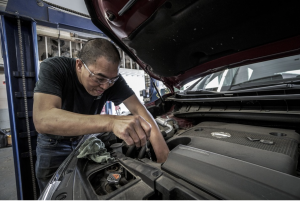The extent of the defects, repair attempts, timing, and impact on safety and usability all contribute to whether your car is a lemon.
If you’ve been putting up with a car that seems to spend more time in the repair shop than on the road, you’re probably wondering if there’s some way to finally get some relief. That’s what lemon laws are for: they protect you, the consumer, when your vehicle doesn’t live up to its promises. Not all vehicles qualify, so how do you know if you’re protected? In this article, we’ll help you understand lemon laws, find out if your car is a lemon, and determine your next steps.
Understanding Lemon Law
Lemon laws are designed to offer a solution, in the form of reimbursement or replacement, for faulty vehicles that cannot be repaired after a reasonable number of attempts. Generally, they apply to new cars, but used vehicles may qualify in certain states. Trucks, motorcycles, SUVs, and even ATVs can also be lemons.
How to Tell If Your Vehicle Is a Lemon
There are four key areas to evaluate when considering if your vehicle may be a lemon.
- Serious Defects
The problems with your car need to be substantial, not just minor cosmetic issues. For example, the defects should affect how it runs, how safe it is, or seriously impact its value. So while your loose mirror or faulty radio may be annoying, it’s unlikely to impact your car’s status as a lemon.
- Reasonable Repair Attempts
While the term reasonable may seem ambiguous, take a step back and look through a lens of fairness and common sense. Have you given the dealer or manufacturer enough chances to fix the problem? Typically, around four unsuccessful repair attempts can be considered reasonable, but this depends on the severity of the issue and state laws.
- Timeframe
Most lemon laws only apply for a set period after purchasing your vehicle. This can be measured in months or mileage (whichever comes first); for example, 12 months or 12,000 miles.
- Unusable
If your car has been out of service and stuck in the repair shop for a total of 30 days or more within the first year you bought it, this could be a sign it qualifies as a lemon.
Common Misconceptions
There are a lot of myths and misconceptions around lemon laws and faulty vehicles. To help you avoid falling into their trap, here are some of the most common ones. One of the biggest myths is that any minor issue or inconvenience automatically qualifies your vehicle as a lemon. However, this simply isn’t true. Lemon laws are designed to cover serious defects, which means things like airbag malfunctions, engine failures, and steering issues.

If you hear a rattling noise in your new car, it doesn’t necessarily mean it’s a lemon. It would need to be related to a much deeper mechanical problem. Another common misconception is that the manufacturer only needs to attempt one repair for the car to qualify. In reality, most states require multiple attempts to fix the same issue before a vehicle is considered a lemon.
Remember, it’s not unusual for it to take a couple of repairs to fix a car, especially if the issue was unclear or complex the first time around. Finally, some people also believe that only new cars are covered under lemon laws. While federal law focuses on new cars, your state may also offer protection for used vehicles.
Next Steps: What to Do if You Have a Lemon
If you think your car meets the above criteria, here’s what you need to do.
- Gather Records
The first thing to do is gather detailed reports to show the timeline of the repairs and all communication with the detailer or manufacturer. This includes documents like work orders, emails, and repair receipts.
- Contact the Manufacturer
Next, if you haven’t done so already, contact the manufacturer. The stage is critical: state laws mandate that you outline the issue with written notification to the manufacturer. Make sure to include the date that you first noticed the problem.
- Secure representation
Finally, you should seek proper representation for the best chance of winning your claim. Consulting Lemon law attorneys who have state-specific knowledge is essential. They can provide guidance and take the stress out of the process.
Overall: Recognizing a Lemon
The extent of the defects, repair attempts, timing, and impact on safety and usability all contribute to whether your car is a lemon. While dealing with a faulty car is frustrating, now you know the signs, you can determine if you’re protected under lemon law and get the help you need.


Join the conversation!